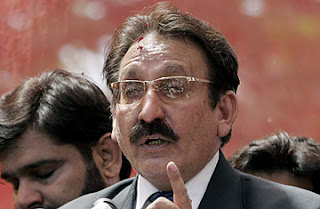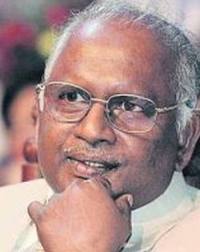Topic Today: June 8, 2012
Pak CJ
shows the way
India to learn a lot from Pak
judicial system
By
Amba Charan Vashishth
At a time when politicians, bureaucrats and judges
are just bold to deny the charges against them but do everything to stall inquiry into their conduct, it was a whiff of
fresh air in the Indian sub-continent comprising India, Pakistan, Bangladesh when
the Chief Justice of Pakistan Supreme Court, Justice Iftikhar Chaudhry, suo
moto took cognizance of allegations against his son Arsalan Iftikhar who is
alleged to have received ` 400 million from tycoon Malik Riaz
Hussain to influence cases in the apex court.
 |
JUSTICE
IFTIKHAR CHAUDHRY
|
Whenever
charges of corruption or wrongdoings are hurled at our politicians, our eyes
and ears go sick of reading and hearing the same stale, oft-repeated chorus of reaction
of our politicians: the allegations are false, unfounded, politically motivated
and aimed at character assassination. Some are more chivalrous to declare that
they would prefer to be hung by the nearest lamppost or quit politics if found
guilty. At the same time they would do all in their power — administrative,
political clout and judicial avenues at their command — to stall any inquiry.
They volunteer to pronounce a judicial verdict of their "innocence"
without letting anybody peep into the allegations and evidence against them and
without providing their accusers the opportunity to prove the case against
them.
Not only did the Chief Justice immediately
constitute a 3-member Bench headed by him but started the proceedings against
him the next day. When his son appeared before the Bench in the Supreme Court, promising
full justice and pointing a finger at his son Justice Chaudhry said: "He
is just Arsalan and not my son as he faces the charge in the court."
On June 7, Justice Chaudhry recused himself from
hearing the case and also indicated that he may enlarge the Bench hearing the
case.
On the other hand, on this side of the border,
hundreds of cases against politicians, bureaucrats and other influential people
are hanging fire for decades without hearing giving accused the opportunity to
declare that no court in the country has given a verdict of guilty.
In an unprecedented action, the
Supreme Court of India on
May 10, 2012 asked the government to inquire into
allegations of corruption and misconduct levelled against former CJI and
present NHRC chief K G Balakrishnan. It said "the competent"
authority in the government would conduct a detailed inquiry into the complaint
against him by Committee for Judicial Accountability. Even after a month nobody
knows what has happened after that. Justice
Balakrishnan continues to occupy the exalted office.
 |
| Justice K G Balakrishnan |
About two decades
back the then Pak President had dissolved Punjab and other assemblies and
dismissed the elected council of ministers. The aggrieved persons knocked the
door of the court and the Supreme Court in about two months gave justice declaring
the action as illegal and restored both the State assemblies and the council of
ministers. We have yet to have similar instances in this country. Court
verdicts in such cases come after years robbing the element of justice and
reducing the same just to a piece of paper of academic d importance just for
future reference. The much-quoted Kashvanand Bharati case concerning
dissolution of Karnataka assembly is such a glaring
example.
Numerous other cases could be counted. Many are pending even
now.
Needless to recall Justice
Iftikhar Chaudhry is the same CJ of Pakistan Supreme Court who had refused to
salute in obedience to the dictates of then Military Dictator General Musharraf
and revolted to maintain the dignity and supremacy of the judiciary. It was
this revolt which cost the General very dearly and ultimately in the 2007
elections led to his down fall.
Our
salute to Justice Chaudhary! We need to learn a lot from the Pakistan example.
No comments:
Post a Comment